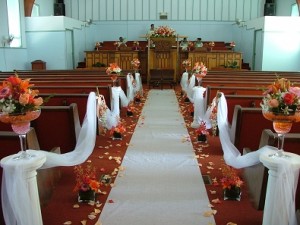The young generation may not know it, but the word “woo” was not originally the first half of “Woo-hoo!” It was a verb having to do with a man romancing a woman. To “woo” someone meant to seek her favor, especially with an eye toward marriage. What followed successful wooing, then, was “courting,” a dating relationship of exclusivity that came before a proposal.
At the other end of a marriage, after a husband has died, his widow technically becomes “woo-able” again. Though she’s been married for most of her adult life, as a widow she has to makes friends with singleness again. Regaining independence is something she didn’t want, and adjusting to it is a job she has to work hard to accomplish. But as hard as it is to admit, she’s unattached and (gulp) available. Please humor me in this post as I try to puzzle out what all this means.
Since becoming a widow 2½ years ago, I’ve quietly been taking a poll of other women made single through widowhood. What are they thinking about their solo status? How long have they been alone? Have they considered remarriage? If not, why not? If so, how does that work?
I’ve become acquainted with scores of widows through this blog and have heard from women who’ve been on their own for a decade, maybe two or even three. What I’ve found in my private poll is that very few are willing to embark on a second marriage. The reasons vary, but the one I hear most is, “It’s too complicated.” Blending two families that may include children, in-law children, and grandchildren is, to most widows, a mountain they’re not willing to climb.
God’s Word tells us it’s not good for man to live alone (Genesis 2:18), but it doesn’t say the same about women. Maybe that’s because women are natural groupers. When widowhood hits, a circle of support is already in place. Widowers, on the other hand, seem to draw into themselves. Statistics show that after a mate dies, men seek to woo and win a lady far more often than widows accept being wooed.
All of us widows wonder how many years we’ll end up being single. I’m 66, and if I live as long as both of my parents, I could be widowed for 26 years. I don’t like the sound of that, but remarrying doesn’t sound right either. So I decided to just ask God what to do.
As he often does, he gave me his answer through Scripture. In the New Testament Paul gives remarriage counsel to two groups of widows, the younger ones (1 Timothy) and the older (1 Corinthians). His bottom line for me is, “Don’t do it.”
(To be continued…)
“To… the widows, I say that it is good for them to remain single as I [Paul] am.” (1 Corinthians 7:8)


Ione was married for about 30 years minus 2 months and then widowed for 30 years plus almost five months. She did feel the loss of their plans for their retirement years. They would have been quite comfortable financially but she was comfortable with what she had. Abbott stock had served her well and she worked for another 12 years after he died. Since Dad had built the house, there was never any mortgage. She had at least one opportunity of being wooed by the widower of a very good friend. But by that time she had been a widow for a decade or two and was comfortable making her own decisions especially about money. She could give away as much as she wanted. She was concerned a new husband might cramp her style. One year she gave MBI enough money that she got to sit with a group with the President at the MBI choir program at Christmas. I think it was called “Candlelight Carols. That was an especially fun thing for her. One of her great blessings was the friendships of numerous men and their trusting wives. There was your dad and all the other Pearle Harder men, the Christian men she had worked with for 30 years, and her brothers Irwin and Ken and brother-in-law Ed Shufeldt. She was never isolated by jealous wives as I understand many widows are. For all of those years her son was hundreds to thousands of miles away. She never ever complained about that. And of course she had the company of dozens of women friends of a variety of ages including her daughters close by. In the end, I think she enjoyed being single, if she could not have Albion. I don’t think that was due to any family complications. I think her family would have celebrated another love for her. It was more a joy of independence and maybe the possibility that a second time might not be as good as the love of her youth. There never seemed to me to have ever been a waning of their romantic love for the 30 years of their marriage.
I have no idea whether this analysis is correct, but it is an impression I have had for a long time. My dad has now been dead for two-thirds of my life.
On the other hand, Ione was an attendant to Helen Carlstone Welch in both her weddings and her brother Ken remarried to give me an Aunt Anna. Both were wonderful blessings to so many people. What a blessing it was to Ed’s and Dean’s kids to have their Grandfather John. So in the end, “as the Lord leads and provides” is the best answer.